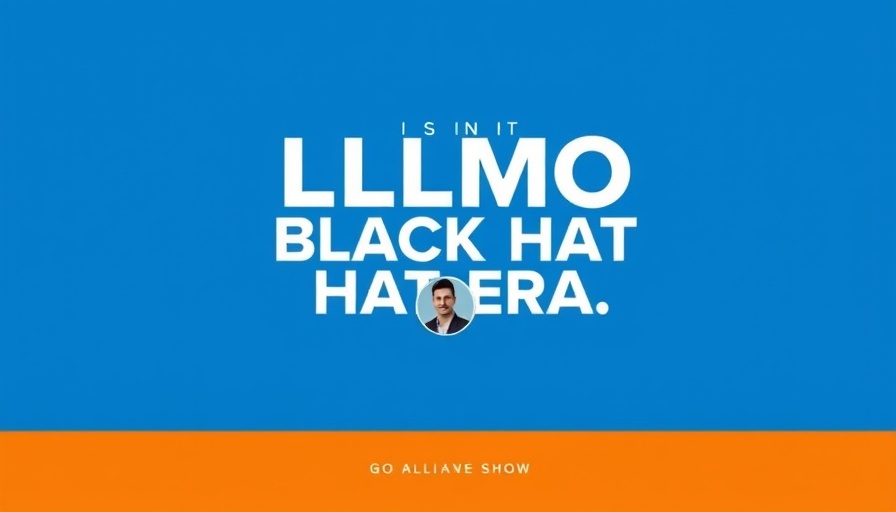
Understanding Black Hat LLMO: A New Frontier in Digital Manipulation
As the digital landscape evolves, we find ourselves at a critical juncture with the emergence of Large Language Model Optimization (LLMO). This new technology, much like its predecessors in SEO, has ignited a rush among professionals eager to exploit it for visibility. However, just as SEOs once engaged in keyword stuffing and link schemes, today's landscape poses a more nuanced challenge: black hat tactics in LLMO.
The Allure of Black Hat Techniques
Black hat SEO tactics may have once seemed harmless, but they disrupted the integrity of search engines. While the foundational principles of LLMO encourage ethical usage, there exists a gray area where individuals may be tempted to manipulate systems for personal gain. Terms like 'keyword stuffing' and 'hidden text' hark back to a bygone era, emphasizing the need for vigilance in identifying analogous tactics in LLMO.
The Similarities Between Black Hat SEO and Black Hat LLMO
To comprehend black hat LLMO, one must examine its parallels with traditional black hat SEO practices. For instance, consider 'private blog networks' — once a way to pass link equity to websites, now transmuting into strategies that falsely position brands as industry leaders. Similarly, where 'negative SEO' aimed to harm competitors by degrading their rankings, its counterpart in LLMO might involve downvoting responses and publishing misleading information to tarnish reputations.
Identifying Black Hat LLMO Tactics
For marketers, awareness is the first step in addressing these emerging black hat tactics. The challenge lies in their subtlety: tactics may not initially seem spammy, yet their unethical intentions undermine the very fabric of knowledge from which LLMs draw. Projects claiming to curate 'best-of' lists for visibility while primarily serving their interests exemplify this trend. LLMO could easily fall into the trap of improving authority under false pretenses unless a reflective, ethical approach is adopted.
Implications of Black Hat LLMO on Digital Marketing
The fallout from widespread black hat techniques could be dire, leading to a decline in trustworthiness across industries that rely on LLMs for information and integrity. The recent shifts in digital marketing express a palpable urgency for rigor in LLM practices before it morphs into a landscape rife with misinformation. Maintain transparency in intent to uphold the ethos of knowledge sharing that should underlay our industry.
Future Trends: Navigating the Changing Landscape
As we stand on the precipice of this transformation, one cannot help but speculate on the future of both LLMO and SEO. With the introduction of tighter regulations and AI oversight, we may witness a gradual embedding of ethical standards in content generation. Strategies such as leveraging analytics and understanding user journeys will become critical in ensuring that marketers don’t fall prey to manipulative tactics.
Conclusion: A Call to Ethical Practice
In an industry marked by rapid evolution, it is the responsibility of professionals to advocate for integrity in LLMO practices. The rise of black hat tactics should urge us to reflect on the legacy of our actions. As digital marketers, the ethics of converting visibility into a currency rests firmly in our hands. Let us commit to transparency and authenticity, guiding ourselves and our fellow professionals towards a more enlightened marketing future.
 Add Row
Add Row  Add
Add 




Write A Comment